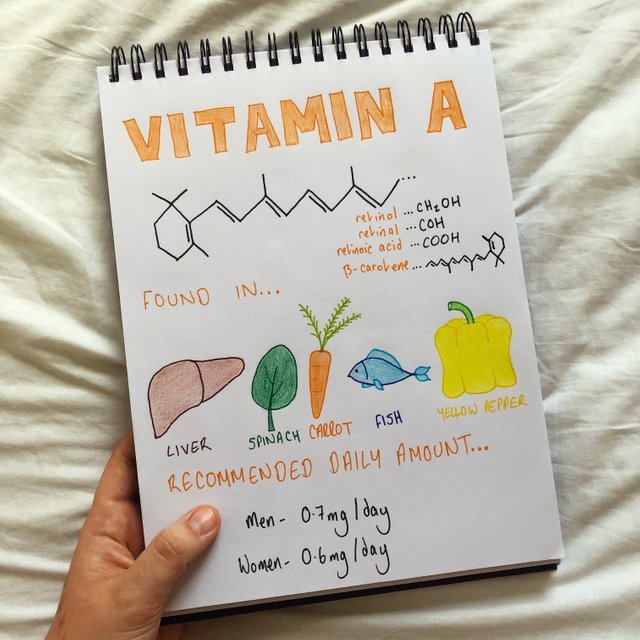✨Vitamin A✨

💫Vitamin A is a fat soluble vitamin that comes in two forms: Retinoids and Carotenoids.
🌟Retinoids [Retinal, Retinol and Retinoid acid] are found in animal products, especially liver.
⚡️Carotenoids [eg. Beta-carotene] are found in plant foods, especially dark leafy greens and yellow/orange vegetables.
💥Each form performs different tasks in the body.
🥕Beta-carotene is a provitamin, this means it is transformed into one of the retinoids once it has been eaten. It can also act as an anti-oxidant, protecting the body against disease.
👁Retinal is very important for vision. Vitamin A deficiency can cause night blindness and xerophthalmia.
🧬Retinol supports sperm development ad cell maintenance. Vitamin A deficiency can cause infertility and keratinisation.
👶🏼Retinoid acid acts as a hormone and regulates growth, cell differentiation and embryonic development. Children deficient in Vitamin A do not grow properly.
🦠Vitamin A is also important for immune function.
💙The NHS recommends a daily intake of 0.7mg for men and 0.6mg for women.
☠️Vitamin A is mostly stored in the liver so there is a risk of toxicity if too much is consumed. Toxicity is rare but symptoms include bone defects eg. osteoporosis and birth defects if excess occurs during pregnancy.
References:
Abrams et al. Manson's Tropical Infectious Diseases 23rd Ed.
Whitney and Rolfes. Understanding Nutrition 14th Ed.
https://www.nhs.uk/conditions/vitamins-and-minerals/vitamin-a/
very good